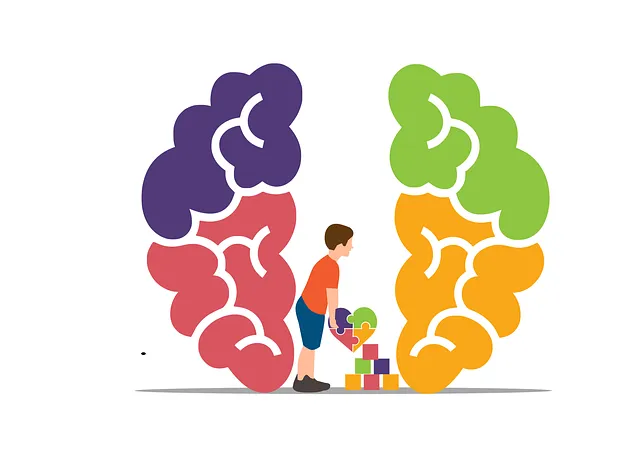The media's portrayal of mental illness significantly shapes public understanding, often perpetuating stereotypes that contribute to stigma and deter vulnerable individuals from seeking help. Organizations like Kaiser Permanente in Colorado Springs are combating this through initiatives emphasizing treatability, manageability, emotional intelligence, and mind-over-matter principles. Their Mental Health Education Programs and Crisis Intervention Guidance break down stereotypes, encourage early intervention, and foster an inclusive society. By integrating evidence-based practices and collaborating with mental health experts, Kaiser Permanente plays a pivotal role in revolutionizing public discourse on mental health, promoting increased acceptance, and improving access to care, as highlighted by their services at the Kaiser Permanente mental health number Colorado Springs.
In today’s media landscape, accurate representation of mental illness is crucial. The way mental health conditions are portrayed can significantly impact public perception and understanding. This article explores the challenge of stereotyping in media and offers solutions to foster positive change. We delve into the role of organizations like Kaiser Permanente in Colorado Springs, known for its commitment to mental health awareness, and discuss strategies to enhance representation. By challenging these stereotypes, we aim to create a more empathetic and informed society.
- Understanding the Impact of Media Portrayal on Mental Health Perception
- The Role of Organizations Like Kaiser Permanente in Promoting Accurate Representation
- Strategies for Challenging Stereotypes and Fostering Positive Change in Media
Understanding the Impact of Media Portrayal on Mental Health Perception

The media plays a pivotal role in shaping societal perceptions about mental health. The way mental illnesses are represented in movies, television shows, and news articles significantly influences how the public understands and responds to these conditions. Unfortunately, stereotypes and inaccurate portrayals have led to stigma and misconceptions for many years. When media depicts mental illness as rare, dramatic, or even as a result of personal weakness, it can contribute to a culture of fear and misunderstanding. This is particularly problematic for individuals already struggling with their mental health, potentially deterring them from seeking necessary support.
On the other hand, positive representations in media can challenge these stereotypes and promote empathy. Showcasing diverse characters navigating mental illness with resilience and strength can encourage viewers to view these conditions as treatable and manageable. Organizations like Kaiser Permanente, with its Colorado Springs mental health services, are actively involved in promoting mental wellness through various initiatives. They offer resources such as Stress Management Workshops and emphasize the power of Emotional Intelligence and Mind Over Matter principles to empower individuals in their mental health journeys.
The Role of Organizations Like Kaiser Permanente in Promoting Accurate Representation

Organizations like Kaiser Permanente play a pivotal role in shaping public discourse on mental health through their initiatives and programs. In Colorado Springs, for instance, Kaiser Permanente’s commitment to accurate representation is evident through various efforts. They offer comprehensive Mental Health Education Programs Design tailored to diverse communities, ensuring that everyone receives relevant and accessible information. These programs aim to dispel stereotypes associated with mental illness, promote understanding, and encourage early intervention.
Moreover, Kaiser Permanente actively supports Crisis Intervention Guidance, providing resources and training for both professionals and the public. By integrating such initiatives into their healthcare services, they foster an environment where individuals feel empowered to seek help without stigma. This holistic approach boosts confidence in managing mental health issues and encourages open conversations, ultimately contributing to a more inclusive and supportive society.
Strategies for Challenging Stereotypes and Fostering Positive Change in Media

Media plays a powerful role in shaping societal perceptions, especially regarding mental health. To challenge stereotypes and foster positive change, several strategies can be implemented. Firstly, encouraging diverse narratives and characters with authentic representations of mental illness can help dispel myths and reduce stigma. This includes showcasing individuals from various backgrounds, ethnicities, and age groups grappling with different mental health conditions, thereby promoting empathy and understanding among viewers.
Additionally, media outlets can collaborate with mental health experts like those available at the Kaiser Permanente mental health number Colorado Springs to ensure accurate portrayal. Incorporating evidence-based practices such as Social Skills Training, Conflict Resolution Techniques, and Compassion Cultivation Practices in media content can educate audiences and promote supportive environments for people living with mental illness. By doing so, media has the potential to revolutionize public discourse, leading to increased acceptance and improved access to care.
In conclusion, media representation plays a pivotal role in shaping public perceptions about mental illness. By understanding the impact of current portrayals, we can actively challenge stereotypes and promote positive change. Organizations like Kaiser Permanente in Colorado Springs are leading the way by advocating for accurate and diverse representation. Through collaborative efforts and implemented strategies, we can create a more inclusive narrative that fosters understanding and support for individuals facing mental health challenges. This shift is essential to improving overall mental health outcomes and ensuring everyone receives the care they deserve.






